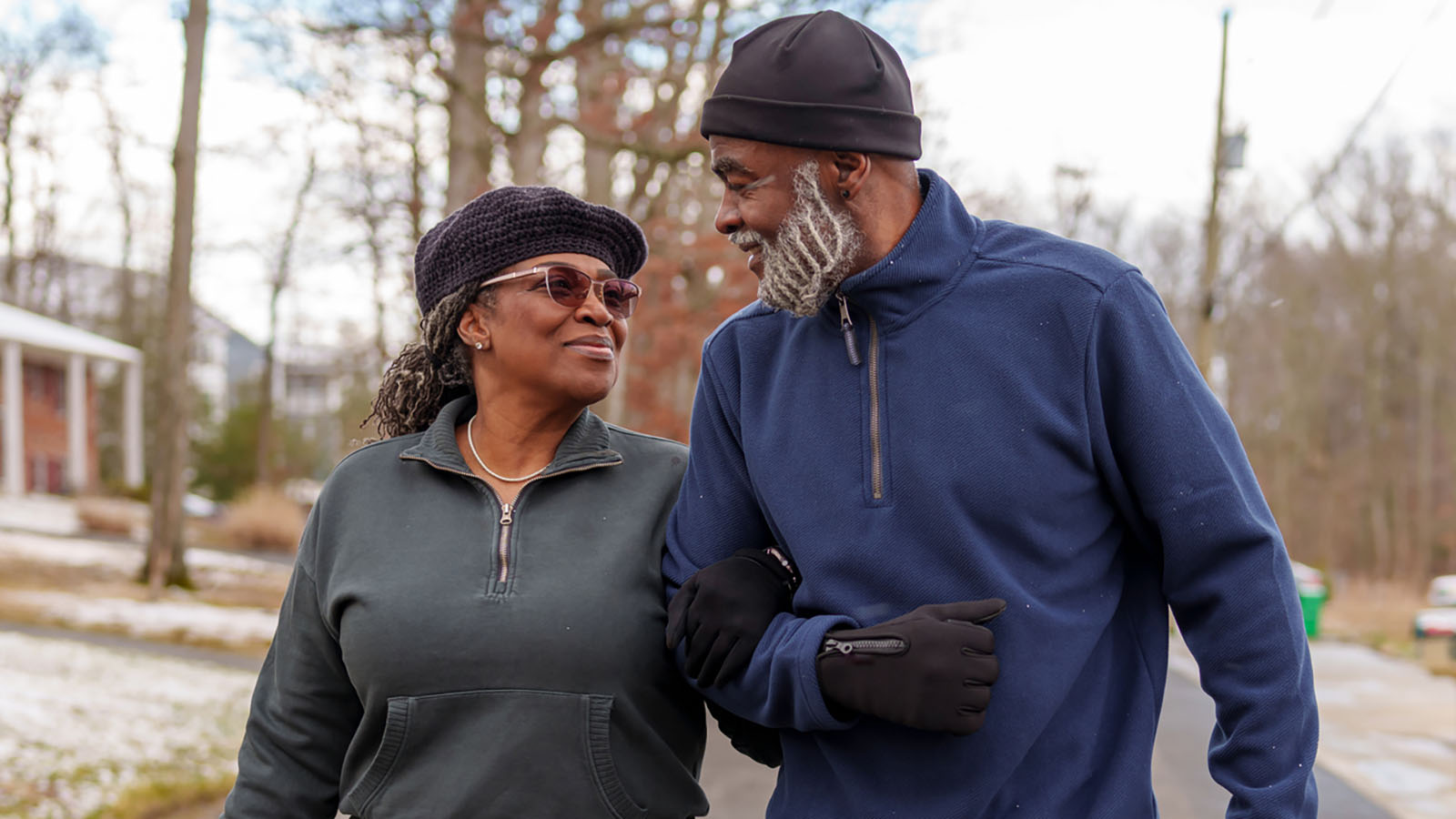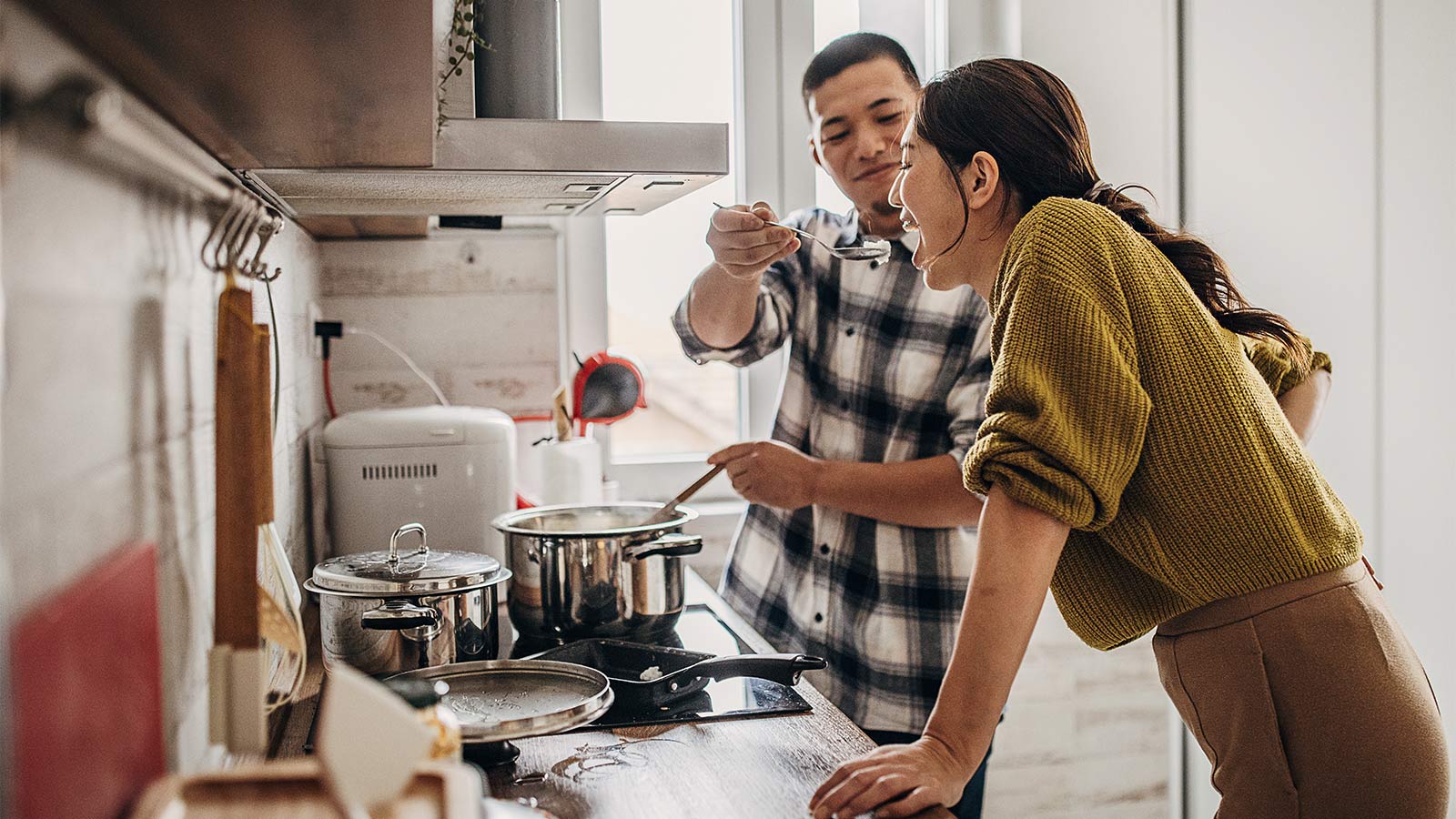From Restless to Restful: How Movement Improves Sleep
Tossing and turning at night? Lacing up your sneakers and moving more during the day can help you sleep better at night.

By Venkata Meka, DO, Family Medicine Physician, Virtua Women's Primary Care - Moorestown
Struggling to sleep at night? You might want to lace up your sneakers and get moving during the day.
Many of us have periods where we have trouble falling or staying asleep due to stress, ongoing pain, menopause symptoms, consuming food or caffeine too late in the day, or some other factor. Long-term insomnia, though, can leave you struggling to stay awake during the day and raise your risk for depression, anxiety, and heart disease.
Physical activity isn't a cure-all for every case of insomnia. But if you're tossing and turning, moving more is a great place to start. Here's how:
Sweat Yourself to Sleep
Working out may help you drift off to dreamland—and stay there—by:
- Regulating your body’s internal clock, which controls your sleep and wake cycles
- Calming your mind so you rest better
- Encouraging other healthy habits—like eating a nutritious diet—that also promote good sleep
Start a Fitness Program
Pick an activity you enjoy and that fits your schedule and lifestyle. That increases your chances of sticking with a plan, which benefits your sleep and your health.
Ways to add more movement to your day include:
- Park in the farthest spot from the office or store.
- If you’re working from home, create a morning “commute,” like going for a walk around the block.
- Opt for the stairs instead of the elevator.
- Do a quick workout during your lunch break.
- Try a new game, like pickleball.
- Instead of meeting friends for coffee, go for a hike or visit a museum.
- Build in a reward—for example, save your favorite show to stream while you’re doing bodyweight exercises, like push-ups and squats
A Complete Sleep Strategy
For best results, combine regular exercise with good sleep hygiene. Stick as close to a regular bedtime and wake-up call as you can, even on the weekends. Develop a calming evening routine—no electronic devices in bed—and keep your bedroom cool and dark.
If not getting enough sleep is still interfering with your daily life, talk with your health care provider. They might recommend medications, therapy, or other treatments to improve your slumber.
With You in Health, Wellness, and Life
Primary care goes beyond helping you when you're sick—it’s also about keeping you healthy for the long run. Make an appointment with a Virtua primary care provider or call 888-847-8823.
There's So Much More to Explore
Discover expert insights, inspiring stories, health tips, and more by exploring the content below!

From Restless to Restful: How Movement Improves Sleep

5 Simple Ways to Spring Clean Your Wellness Routine

What to Expect From a Robotic Hysterectomy

When You Need A Hysterectomy Know Your Options

9 Essential Reasons to Vaccinate Your Children

Take Control of Incontinence, Prolapse, and Other Pelvic Floor Disorders

How Can I Prevent Bone Loss and Osteoporosis?

What Should You Do if You Slip, Fall, and Hit Your Head?

How Do You Manage the Side Effects of Weight-Loss Medications?

Which Weight-Loss Option is Best for Me?

Best Foods for Kidney Health

What Causes Food Addiction And What Are The Signs

5 Essential Winter Foot Care Tips When You Have Diabetes

Sweet Music: Trust, Teamwork Save Justin from Heart Attack

Your 10-Point Plan to Avoid Winter Weight Gain

Be Fast and Spot the Signs of Stroke

Surprising Symptoms May Signal Stroke In Women

8 Key Steps to Better Blood Pressure Control

5 Back Stretches for the Work-From-Home Workweek

The HPV Vaccine: A Powerful Shield Against Cervical Cancer

Menopause: New Insights Into the Power of Hormone Replacement Therapy

How to Prevent and Treat Urinary Tract Infections

6 Numbers Key to Keeping Your Heart Healthy
Lung Valve Surgery Relieves COPD, Emphysema Symptoms

4 Easy Ways to Treat and Prevent Runner's Knee

Lung Screening, Robotic Technologies Get Pat Kicking Up Her Boots Again

Five Mindfulness Tips That Can Help Heal Your Heart
Working from Home? Take a Quick Break to Stretch Your Wrists

How Do I Get Rid of This Back Pain for Good?

Love Your Heart: Essential Care Tips for Every Stage of Life

How Do I Measure My Blood Pressure at Home?

How Do I Improve My Cholesterol Levels?

3 Ways to Reduce Your Stroke Risk

Put Your Mammogram Appointment on the Top of Your To-Do List
Firefighter's Successful Lung Cancer Care at Virtua
A Lung Screening Put Teresa Back in the Race

How Sex Keeps You Healthy as You Age

Protect Your Child From HPV and Related Cancers

Why IUDs Might Be The Most Effective Birth Control

5 Things You're Too Embarrassed to Tell Your OBGYN

4 Not-So-Crazy Questions to Ask Your Doctor

What to Know About Cervical Cancer Screenings

Forget Dieting: Find Your Eating Pattern

